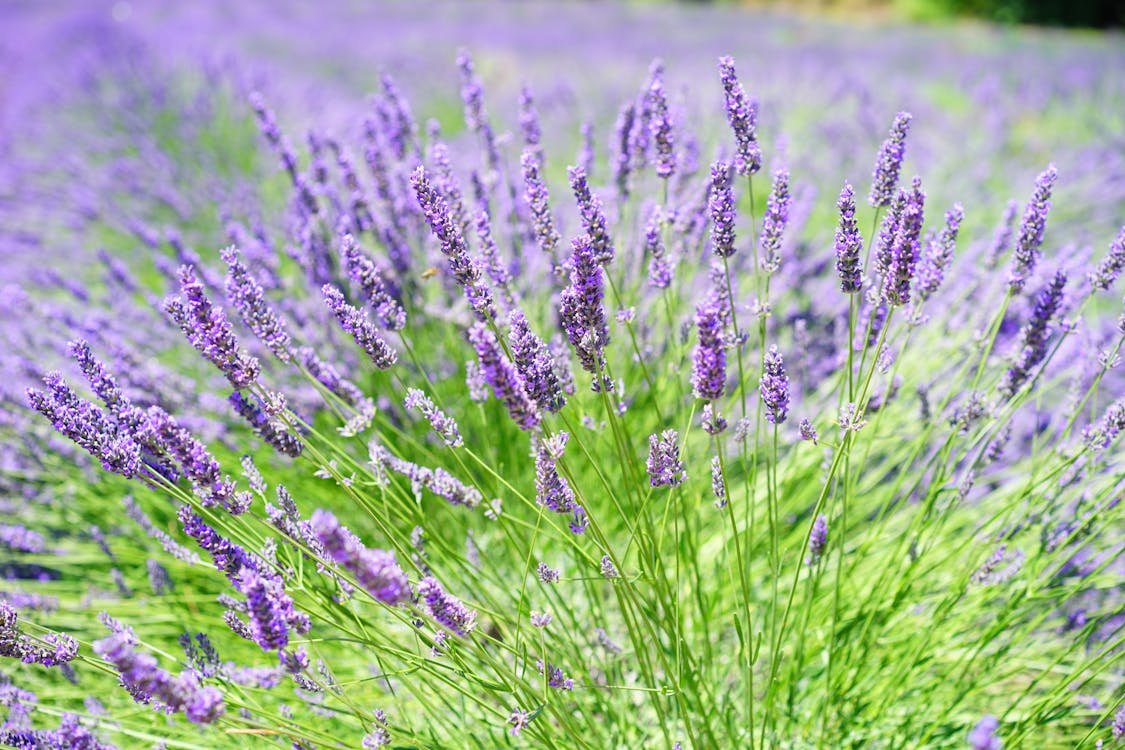
In today’s fast-paced world, stress has become an unavoidable part of our lives. As we navigate through the daily challenges and demands, finding effective ways to manage stress and promote overall well-being has become a priority. Enter adaptogens – a fascinating group of natural substances that have been revered for centuries for their ability to help the body adapt to stress. In this article, we will explore the world of adaptogens and uncover how these remarkable herbs can be our allies in combating stress and enhancing our resilience.
1- Understanding Adaptogens:

Adaptogens are a unique class of herbs and plants that possess the remarkable ability to modulate our stress response. Unlike stimulants, which temporarily increase alertness and energy levels, adaptogens work by promoting balance and harmony within the body, thereby supporting our overall well-being. These incredible botanicals have been used for centuries in traditional medicine systems like Ayurveda, Traditional Chinese Medicine (TCM), and indigenous practices.
The concept of adaptogens is not new; in fact, it has a long history dating back to ancient civilizations. In Ayurveda, the traditional medicine system of India, adaptogenic herbs have been highly regarded for their ability to help the body adapt to various stressors and maintain equilibrium. In TCM, adaptogens are considered essential for strengthening the body’s vital energy, known as Qi, and maintaining a healthy balance between the opposing forces of Yin and Yang.
Some of the most popular adaptogenic herbs include Ashwagandha, Rhodiola Rosea, Ginseng, Holy Basil, Reishi Mushroom, and Schisandra, among others. Each of these herbs has unique properties and benefits, but they all share the common trait of being able to help the body cope with stress and restore balance.
One of the fascinating aspects of adaptogens is their ability to exert a “biphasic” effect on the body. This means that they can both calm and energize the body, depending on what is needed at any given time. For example, if you are feeling fatigued and stressed, adaptogens can help reduce anxiety and promote relaxation. On the other hand, if you are feeling sluggish and lacking motivation, adaptogens can provide a natural boost of energy without the jittery feeling often associated with stimulants.
Modern scientific research has started to uncover the mechanisms behind the adaptogenic effects of these herbs. It is believed that adaptogens work by interacting with the hypothalamic-pituitary-adrenal (HPA) axis, which is responsible for regulating the body’s stress response. By doing so, they can help normalize cortisol levels, reduce inflammation, and improve overall resilience to stress.
Moreover, adaptogens are known for their potential to support the immune system, enhance cognitive function, and improve sleep quality. They also have antioxidant properties that can help protect cells from damage caused by free radicals, which are unstable molecules that contribute to aging and various diseases.
In recent years, adaptogens have gained popularity in the health and wellness community, and their use has expanded to a broader audience. People from all walks of life are increasingly turning to these natural remedies to help them cope with the demands of modern-day living and the numerous stressors that come with it.
However, as with any herbal supplement or medication, it is crucial to exercise caution and seek guidance from a qualified healthcare professional before incorporating adaptogens into your wellness routine, especially if you are pregnant, nursing, or taking prescription medications.
2- How Adaptogens Work:

Adaptogens work by influencing the body’s stress response system, mainly the hypothalamic-pituitary-adrenal (HPA) axis and the sympathetic-adrenal-medullary (SAM) system. These remarkable herbs have a sophisticated ability to interact with these complex pathways, helping to regulate the release of stress hormones, such as cortisol, and restore balance to our physiological processes.
When we encounter stressful situations, our bodies activate the fight-or-flight response, triggering the release of stress hormones to prepare us for a rapid response. While this response is essential for our survival in dangerous situations, prolonged activation of the stress response can have detrimental effects on our overall health. Chronic stress has been linked to a wide range of health issues, including immune system dysfunction, cardiovascular problems, anxiety, and depression.
This is where adaptogens shine. When we consume adaptogenic herbs, their bioactive compounds interact with receptors in the brain and body, triggering a series of cellular responses that help counteract the harmful effects of stress. These adaptogenic actions vary depending on the specific herb but generally involve modulating the release and sensitivity of stress hormones.
For example, the adaptogenic herb Ashwagandha has been found to reduce cortisol levels in individuals experiencing chronic stress, thereby promoting a calmer state of mind and improved sleep quality. On the other hand, Rhodiola Rosea has been shown to enhance the body’s resilience to physical and mental stress, resulting in increased endurance and reduced fatigue.
The ability of adaptogens to regulate the stress response also extends to the immune system. Chronic stress weakens our immune defenses, making us more susceptible to infections and diseases. Adaptogens can help strengthen the immune system by reducing inflammation and promoting the production of immune-boosting compounds.
Furthermore, adaptogens support cognitive function and mental clarity. Prolonged stress can impair cognitive abilities, leading to memory issues and difficulty concentrating. By promoting a balanced stress response, adaptogens can help enhance focus, memory retention, and overall cognitive performance.
Another fascinating aspect of adaptogens is their ability to act as hormetic stressors. A hormetic stressor is a mild stressor that, when applied in the right amount, activates beneficial adaptive responses in the body. Regular exposure to hormetic stressors, like adaptogens, can increase our resilience to more severe stressors and contribute to overall well-being.
As adaptogens continue to gain popularity in modern society, scientific research is also delving deeper into their mechanisms of action and potential therapeutic applications. The study of adaptogens, known as “adaptogenology,” is a burgeoning field of research that seeks to understand how these natural compounds interact with our bodies on a molecular level.
It’s important to note that while adaptogens offer numerous potential benefits, they are not a magical cure-all. A healthy lifestyle that includes a balanced diet, regular exercise, sufficient sleep, and effective stress management techniques remains essential for overall well-being. Additionally, individual responses to adaptogens may vary, and it’s advisable to consult with a healthcare professional before incorporating adaptogens into your wellness routine, especially if you have any underlying health conditions or are taking medications.
3- Adaptogenic Herbs and Their Benefits:

- Ashwagandha (Withania somnifera): Ashwagandha is a revered herb in Ayurvedic medicine known for its calming and rejuvenating properties. It helps reduce stress and anxiety, enhance mental clarity, promote restful sleep, and support overall vitality.
- Rhodiola (Rhodiola rosea): Rhodiola, often called the “golden root,” is known for its adaptogenic and energizing properties. It helps improve mental and physical performance, reduce fatigue, and enhance resilience to stress.
- Holy Basil (Ocimum sanctum): Holy Basil, also known as Tulsi, is considered a sacred herb in Ayurveda. It is known for its calming effects, promoting mental clarity, and supporting the body’s resilience during times of stress.
- Ginseng (Panax ginseng): Ginseng is a widely recognized adaptogenic herb in both traditional Chinese medicine and Western herbalism. It is known for its ability to enhance cognitive function, boost energy, and promote overall well-being.
4- Incorporating Adaptogens into Your Daily Routine:
Adaptogens can be consumed in various forms, including capsules, tinctures, teas, or as an ingredient in functional foods and beverages. When incorporating adaptogens into your routine, it’s essential to choose high-quality products from reputable sources to ensure maximum potency and efficacy.
It’s important to note that adaptogens work best when used consistently over time, as their effects are often cumulative. Start with a single adaptogen and observe how it affects your body and mind before incorporating others. Consulting with a qualified healthcare practitioner or herbalist can provide personalized guidance based on your specific needs and health goals.
Note:
In a world where stress has become a prevalent concern, the search for effective and natural solutions is more important than ever. Adaptogens, with their unique ability to support the body’s response to stress, offer a holistic approach to managing stress and promoting overall well-being. From ashwagandha and Rhodiola to holy basil and ginseng, these remarkable herbs provide us with a gentle and nurturing way to adapt, restore balance, and thrive amidst life’s challenges. Embrace the power of adaptogens and unlock nature’s stress-busting potential for a healthier and more resilient you.




